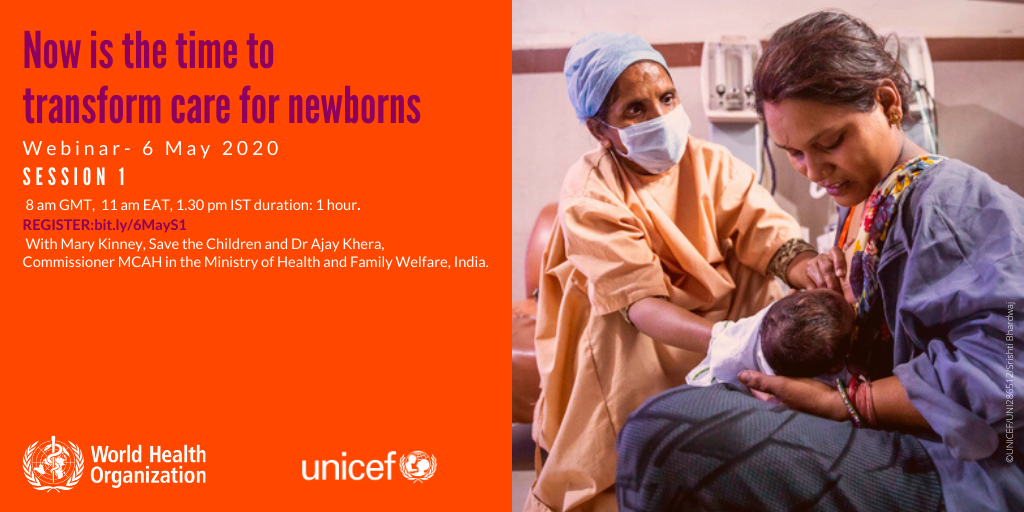All presentations are available on the right-hand menu.
Expanding provision of care to all newborns, including the most vulnerable ones, is imperative to make progress towards the goal of ending preventable newborn deaths by 2030. The webinar presented how people-centered care for small and sick newborns and the experience of India in caring for newborns offer lessons on how to transform care for small and sick newborns.
Mary Kinney presented the key findings of the 1st chapter ‘Now is the time to transform care for Newborns’ of the Survive and Thrive: transforming care for every small and sick newborn report, which highlights these key points:
- Meeting global targets for the survival of newborns and children aged under 5 years requires adding special and intensive levels of care to well-established obstetric and essential newborn health services.
- Every newborn has the right to survive and thrive.
- Family-centred care offers proven benefits for newborns, as well as for parents, families and health workers.
- Lessons from the past inform priorities for our future.
Dr. Ajay Khera explained India’s experience in transforming care for newborns, at both facility level and in a family setting, and shared lessons on what it requires:
- Political commitment and investment of domestic resources
- Facility-based newborn care at district level through capacity building/ mentoring support through institutional collaboration
- SNCU Online to help in evidence-based program management
- Engaging families in care of sick newborn
- Home-based visits as a game changer for improving newborn rearing practices
Dr. Ornella Lincetto put the provision of services for small and sick newborns in the context of the COVID 19 pandemic. She explained that these services remain core essential services during the pandemic and presented some of the guidance on Covid-19 and newborn health.
The presentations were followed by a Q&A session, with questions spanning a range of topics such as the feasibility of starting online SNCU System in level 3 NICUs in India, whether quality improvement in SNCUS will be incorporated in the LaQshya initiative, the threats and opportunities presented by the COVID19 outbreak in caring for small and sick newborns, and the obstacles to providing special and intensive levels of care for vulnerable newborns.
See also a new operational guidance for South and South-East Asia and the Pacific Regions on continuing essential sexual, reproductive, maternal, neonatal, child and adolescent health services during COVID-19 pandemic.
This is the first webinar in a series on Transforming care for newborns, organized by the World Health Organization and UNICEF, in collaboration with the Network for Improving Quality of Care for Maternal, Newborn and Child Health.
See the topics and dates of the whole series

